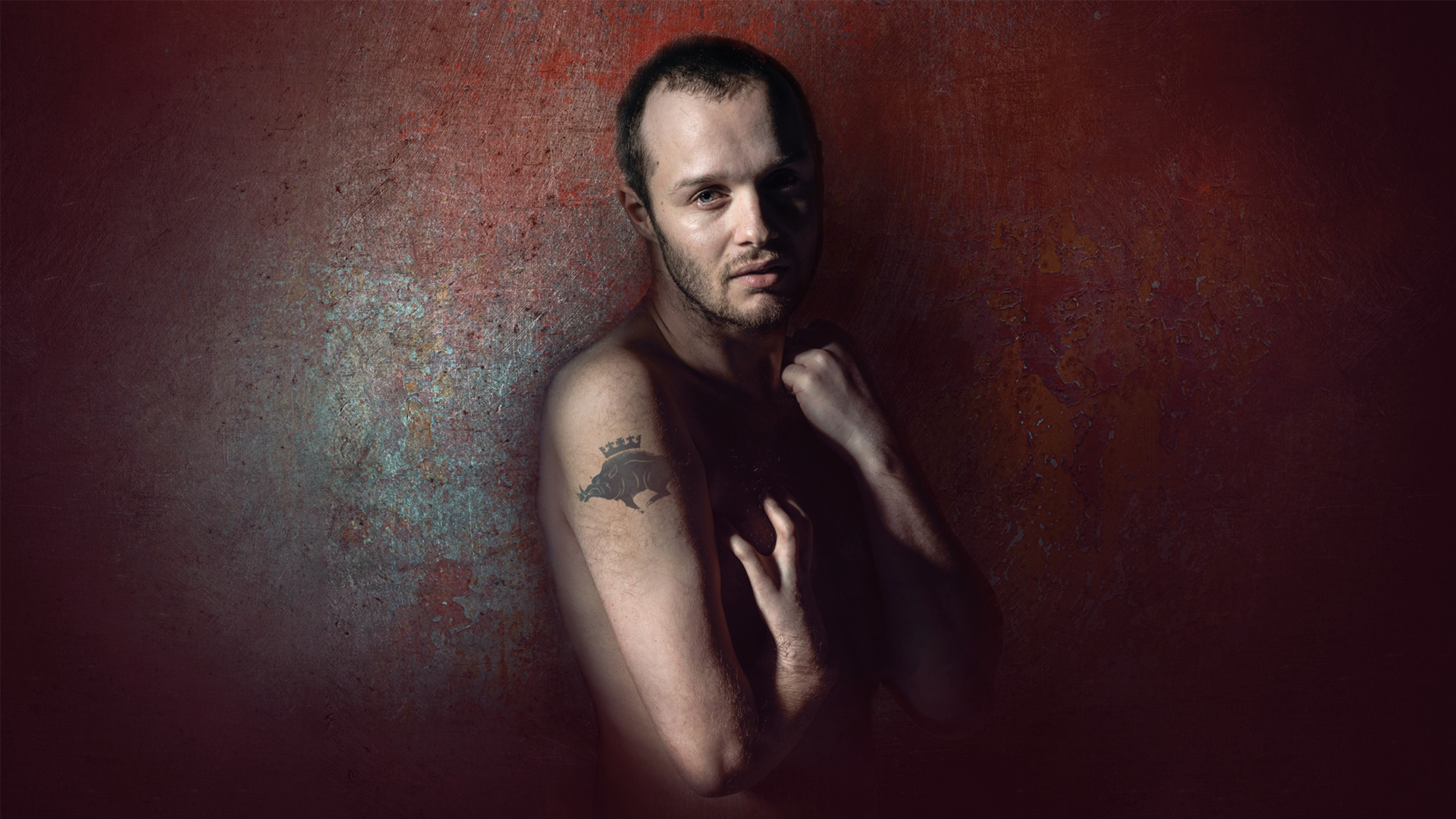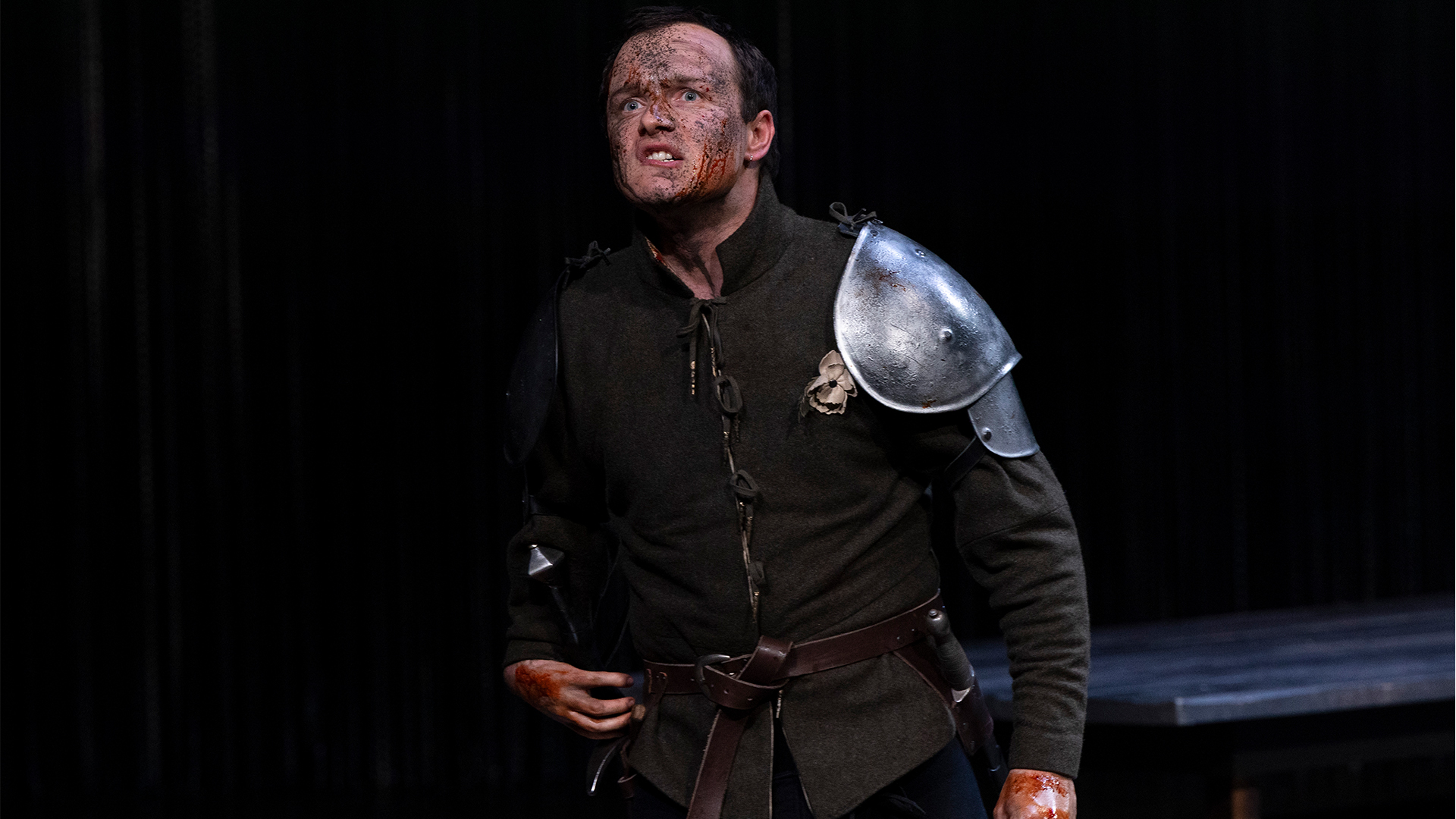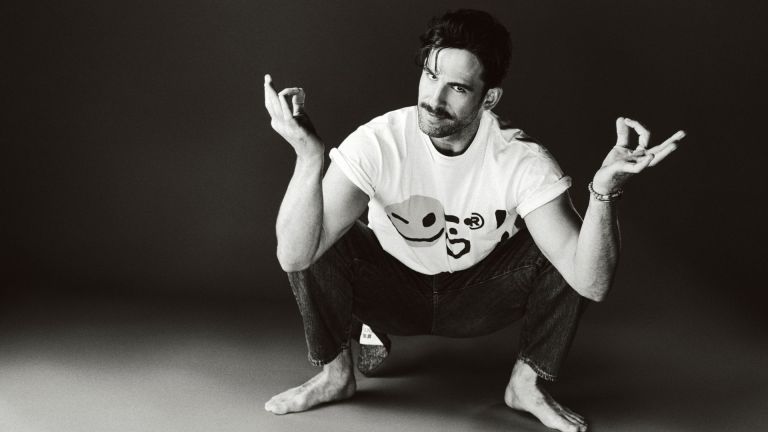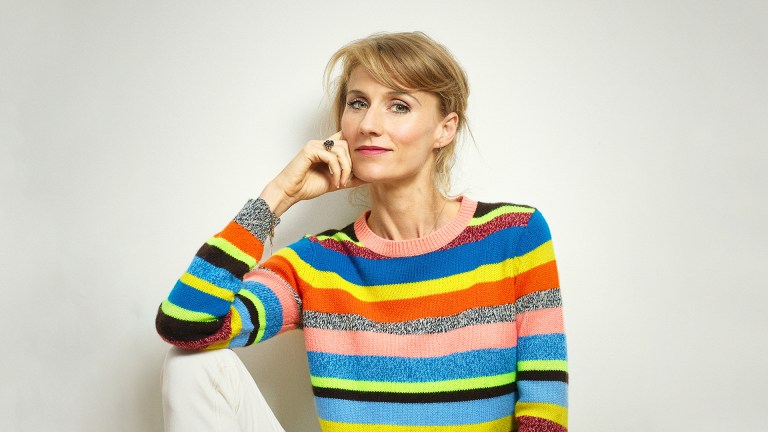Fresh from his title role in Jack Thorne’s critically-acclaimed drama Then Barbara Met Alan for the BBC, actor Arthur Hughes discusses fulfilling his life-long dream of taking on Shakespeare’s most unscrupulous king, his debut season with the company and the significance of the RSC casting a disabled actor in the role of Richard III for the very first time.
It’s a real experience being in the driving seat as one of Shakespeare’s greatest characters, and real bucket list territory for an actor to be driving him around the racecourse that is the Royal Shakespeare Theatre.
This production will be the first in the RSC’s history to feature a disabled actor in the title role of Richard III. Arguably, as one of the English-speaking worlds’ most famous disabled characters, this feels long overdue. Richard has been a character I’ve wanted to play for ages, and I’m sure many other disabled actors feel a similar connection to him.
Richard is a disabled man in an ableist world
Arthur Hughes
Being underestimated, overlooked, shunned and forgotten about, this is what disabled people experience daily in an ableist society and have experienced since Shakespeare’s time and before. The significance then, of having this character represented by a disabled body on stage cannot be underestimated.
It makes a marked difference in having Richard played by a disabled person and part of the reason why I see this as a landmark moment for reclaiming Richard III as a leading part for disabled actors to inhabit. Historic portrayals that feature prosthetics, limps, humps, bumps and straps tacked onto a non-disabled person, I believe, do a disservice to the depth of Richard as a character…and what a character! Playing Richard as a disabled actor, the audience can see the difference instantly and the language only serves to heighten that. You’re not seeing an impression or an artifice. The work is already done.
The play’s about the notion of conscience, and what happens when we choose to ignore it. Good and bad, the moral code, and the hierarchy of society are things that we are all bound by. But if this hierarchy shuns you, degrades you and builds barriers that shut you out, isn’t it natural that you would choose not to abide by its principles?










